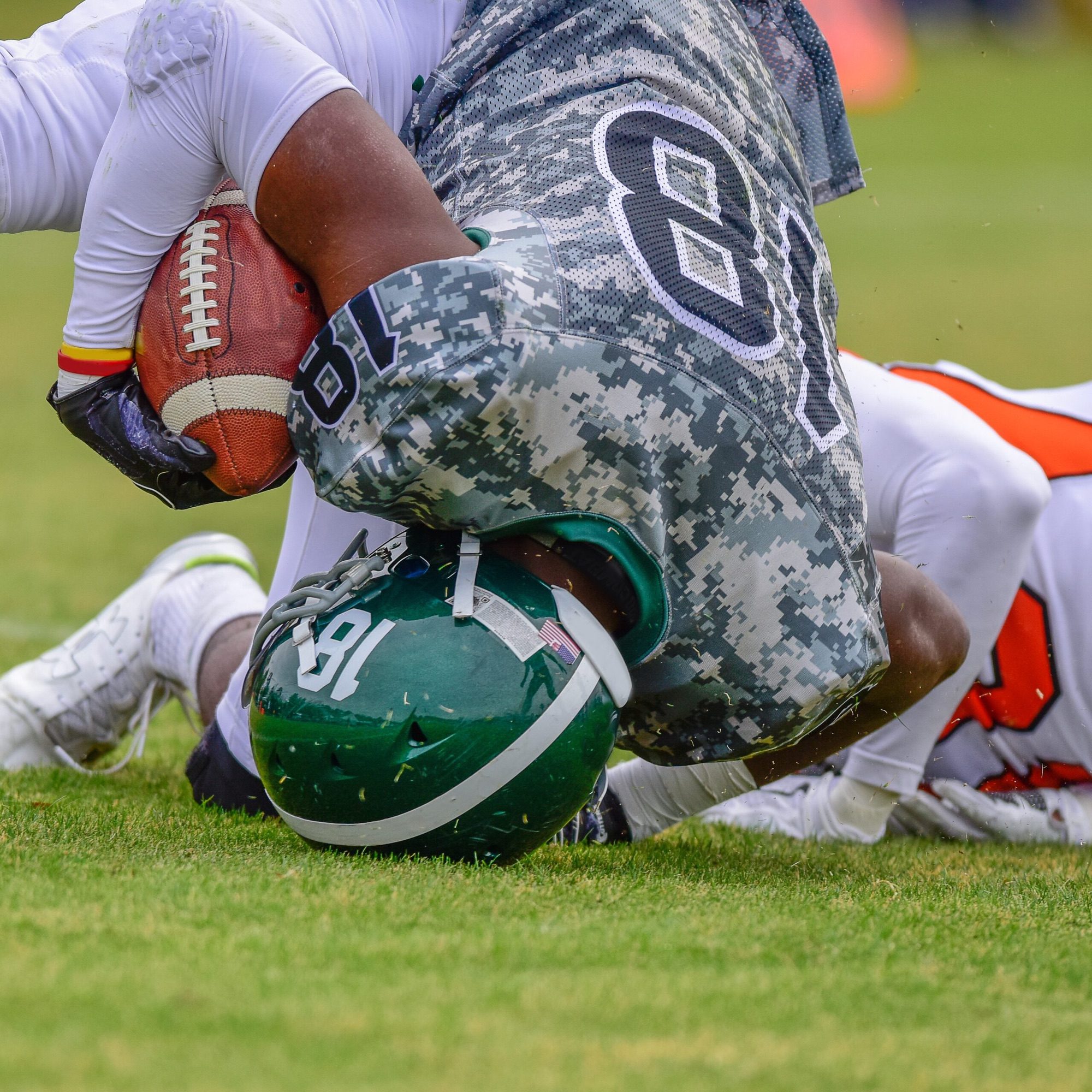Concussions are common in athletes. They are common in contact sports, like football and hockey. But, concussions also happen in non-contact sports, like soccer and baseball. BSR Physical Therapy and our doctors of physical therapy evaluate, manage and treat many patients with a concussion. This article answers the most common questions we get from parents and athletes.
What is a Concussion?
A concussion is a traumatic brain injury caused by biomechanical forces. This may be from either a direct blow to the head, face, or neck. Or a blow elsewhere on the body may trigger an impulsive force transmitted to the athlete’s head.
Does a Concussion Show up on an MRI, Scans, or X-Ray?
Brand new concussion injuries do not show up on imaging. Emergency room departments will commonly perform CT scans of the brain and skull to ensure that there are no fractures, brain bleeds or serious injuries. MRI usually does not find any acute injuries as well. However, new research has shown chronic changes in the brain long after the time of injury.
What are the signs and symptoms of a Concussion?

Some common symptoms include neck pain, dizziness, blurred vision, difficulty concentrating, sensitivity to light, sounds, and motion sickness. Some people also experience changes in mood or behavior. It is common to have symptoms immediately but others develop within hours or over the next couple of days. In most cases, symptoms resolve on their own with relative rest. However, there are some cases that last a little longer than usual (more than a week or two).
When should I seek professional help?
High school athletes should have an athletic trainer as part of the sports medicine team to evaluate him or her for a suspected concussion. Athletic trainers are qualified healthcare professionals to manage suspected head injuries. They will also refer an athlete to a physician when appropriate. When symptoms do not resolve with time and relative rest, an appropriate referral to a specialist is indicated.
How do physical therapists help athletes with concussions?
Physical therapists may be asked to help manage and treat athletes who still have lingering symptoms from a concussion. Your physical therapist will take a detailed history of the injury to understand the progression of symptoms. A comprehensive physical examination will also be performed to assess neck motions, balance, concentration, and eye movements. This will determine if there are impairments causing symptoms and limiting functional ability. An individualized plan of care and treatment is then provided to decrease concussion symptoms and progressively return the athlete to activity.

When can I go back and play?
Each case is unique, so no 2 concussions are alike no matter how “bad” they initially seem. So the answer really is, it depends. Your physical therapist will put you through a thorough return to activity protocol to simulate the demands of your sport. This helps to gauge the readiness for a return to sport.
In the end, in the State of New Jersey, only a physician has the power to medically clear an athlete to return to sport. However, a collaborative effort between the physical therapist, athletic trainer, and physician ensures a safe return at a high level.
Seek Help from Your Physical Therapist
In summary, sports-related concussions are common in athletes who play both contact and non-contact sports. Symptoms from concussions usually resolve on their own with time and relative rest. When symptoms linger for longer than usual, the healthcare team must get involved.
Learn more about BSR’s Concussion Rehabilitation program. Your physical therapist will help you get back to safely playing at a high level. Give us a call if you would like help getting back in the game after a concussion.
by Dr. Mark Daitol, PT, DPT, CSCS

